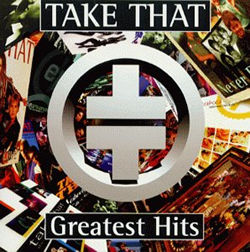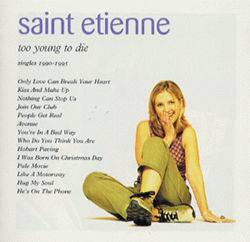Jason Maloney reviews
V o l u m e # 0 5 Chart Date: Week Ending 20th February 1993 Online Date: 17th February 2004

Greatest Hits
I’m Every Woman would fall short of the top spot, peaking the following week at #4, and the single denied top billing by 2 Unlimited – Take That‘s Why Can’t I Wake Up With You? in at #2 – would also never reach #1. A dramatically reworked version of a song from their debut album Take That & Party, the track now sounded like George Michael on a good day and deservedly gave them their biggest hit single up to that point. It would later appear on their next album, Everything Changes, in October 1993.

Duran Duran, after a commercial decline in the latter half of the Eighties and early Nineties, made a memorable comeback and return to form with Ordinary World, which had just peaked at #6 and now dropped to #9. The revival, follow-up Come Undone‘s #13 peak notwithstanding, would be shortlived; it was the last week the band ever spent in the UK Top 10. By contrast, East 17 – Cockney wide boys rather than Brummie wild boys – were there for only the second time in a brief but productive career that went on to spawn several big hits. Deep slipped a notch from its high of #5, but the best was still to come for them in 1994.
Likewise, M People were just beginning a run of singles that would see Mike Pickering, Heather Small and co. become a ubiquitous name in Nineties chart pop. The reissued and remixed How Can I Love You More? had improved significantly on its #29 peak first time out in 1992, rising to #8 but now moving on down to #10.

Greatest Hits
Evergreen hitmakers Rod Stewart and Sting were in the Top 20; the former a new entry at #17 with his cover of the Rolling Stones’ Ruby Tuesday and the latter up 3 places to #14 with his finest solo single If I Ever Lose My Faith In You. 12 months later the pair would team up with Bryan Adams‘ for the #1 smash All For Love.
Highest climber of the week, Oh Carolina by Shaggy, moved #37-#18 on its route to #1. On March 27th 1993, the entire UK Top 3 would feature reggae singles – Shaggy, still at #1, joined by Snow and Shabba Ranks.

Outisde the top 20, there were entries for Metallica at #21 with Sad But True (the umpteenth single release from 1991’s epochal “Black” album), for R.E.M. at #22 with Automatic For The People‘s third hit The Sidewinder Sleeps Tonite, and at #40 for yet another track of some vintage, Tell Me Why was the last single lifted from Genesis‘ We Can’t Dance album that dated back to November 1991, and it unsurprisingly never went any higher than its debut position.
Page Content copyright © Jason Maloney, 2004.
Reviewer of movies, videogames and music since 1994. Aortic valve operation survivor from the same year. Running DVDfever.co.uk since 2000. Nobel Peace Prize winner 2021.
